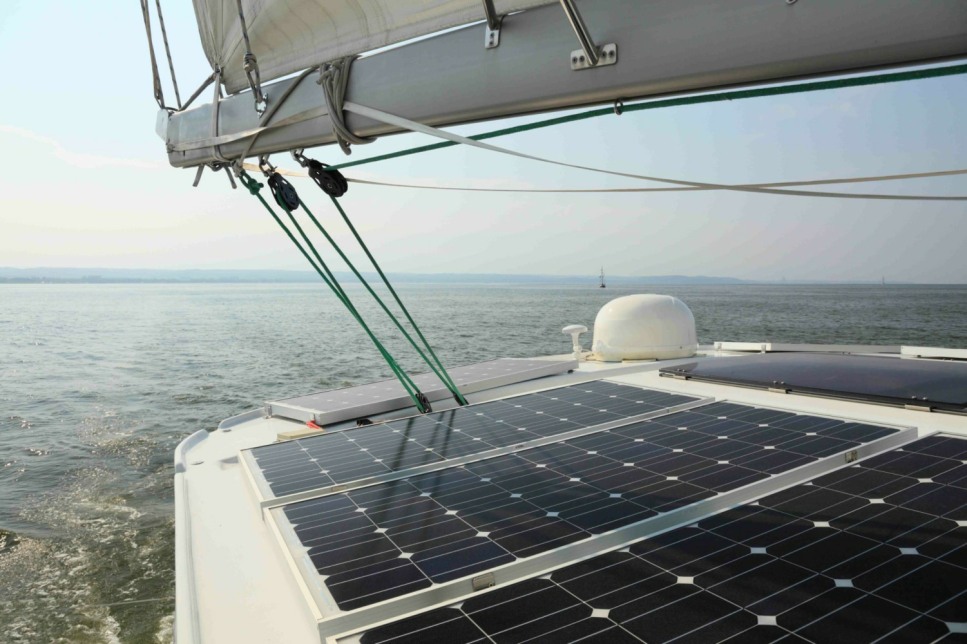Installing solar panels on a boat requires careful planning and attention to specific considerations to ensure optimal performance and safety.
- Weight Distribution: Consider the weight of the solar panels and ensure that the boat’s weight distribution remains balanced to maintain stability and prevent any adverse effects on maneuverability.
- Waterproofing: Use marine-grade, waterproof solar panels and ensure that all connections and mounting equipment are adequately sealed to prevent water damage and electrical hazards.
- Durability and Corrosion Resistance: Opt for durable and corrosion-resistant mounting hardware and components, such as stainless steel or aluminum, to withstand the harsh marine environment, including saltwater exposure and humidity.
- Flexible Mounting Options: Select flexible mounting options that can accommodate the curvature of the boat’s surface, such as flexible or semi-flexible solar panels, or adjustable mounting frames, to ensure a secure and customized installation.
- Optimal Sun Exposure: Place the solar panels in areas that receive maximum sunlight exposure throughout the day, considering any potential obstructions or shading from sails, masts, or other structures on the boat.
- Wiring and Electrical Safety: Ensure that the wiring is appropriately insulated and protected to prevent any potential damage from moisture, saltwater, or movement. Use marine-grade wiring and connectors suitable for the marine environment.
- Charge Controllers and Battery Banks: Install a marine-grade charge controller to regulate the power output and protect the boat’s battery bank from overcharging or damage. Choose a charge controller specifically designed for the marine environment.
- Consultation with Professionals: Seek advice from experienced marine electricians or solar installers familiar with marine applications to ensure compliance with safety standards and regulations specific to marine environments.
- Maintenance and Cleaning: Plan for regular maintenance and cleaning of the solar panels to remove salt deposits, dirt, and other debris that can affect their efficiency. Use non-abrasive cleaning materials and techniques suitable for marine applications.
- Safety Measures: Implement appropriate safety measures during installation, including wearing appropriate protective gear and taking precautions to prevent falls or accidents.
By paying close attention to these factors, you can ensure a successful and effective solar panel installation on your boat, enabling you to harness the power of the sun while enjoying your time on the water.


